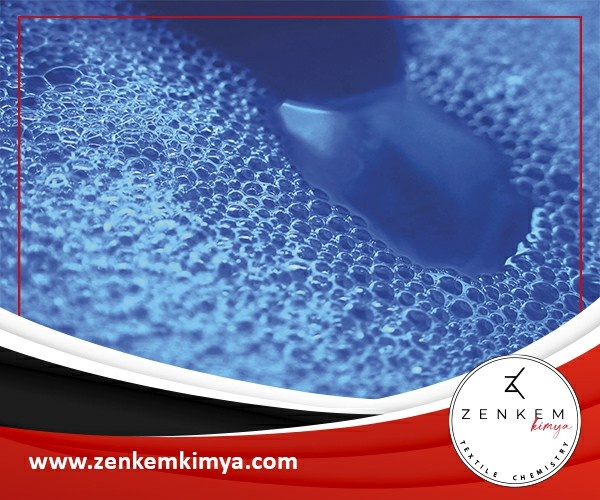The Application of Defoamers in the Pulp and Paper Industry
The Application of Defoamers in the Pulp and Paper Industry
Blog Article
Discover the Leading Advantages of Using Defoamers in Industrial Processes
The use of defoamers in commercial procedures presents a variety of engaging advantages that can boost functional efficiency and product high quality. By effectively controlling foam manufacturing, these representatives not just maximize material flow however likewise add to substantial cost reductions and improved sustainability. Their application spans numerous sectors, which raises concerns regarding their function in mitigating ecological impact while making sure regular output. Comprehending these benefits is essential for markets aiming to fine-tune their processes. The effects of taking on defoamers might be extra extensive than originally perceived. What specific advantages could your organization harness?
Enhanced Refine Performance
Enhancing industrial procedures often entails attending to lathering issues, which can prevent operational effectiveness. Foam development can disrupt the appropriate functioning of tools, decrease the reliable usage of sources, and complicate the surveillance of vital parameters. By applying defoamers, markets can properly reduce these concerns, resulting in structured procedures and enhanced performance.
Defoamers work by destabilizing the foam framework, permitting quick collapse and significant decrease in foam quantity. This action not just enhances the circulation of materials with tools, such as reactors, pipelines, and mixers, yet also lessens interruptions brought on by foam overflow. Equipment downtime is minimized, permitting for an extra efficient and continuous production process.
Furthermore, making use of defoamers can bring about reduced energy consumption. With less foam to take care of, pumps and compressors can operate much more effectively, causing reduced functional prices and a total enhancement in process throughput. Inevitably, the tactical use of defoamers not only addresses immediate frothing obstacles yet likewise contributes to a much more efficient industrial environment, promoting a competitive advantage in a requiring market.
Improved Item Top Quality
The combination of defoamers in industrial processes plays a vital function in improving product quality. By effectively controlling foam development, defoamers add to the uniformity and harmony of last items. Extreme foam can cause aeration, which negatively influences the appearance and security of formulas, particularly in sectors such as food and drinks, layers, and pharmaceuticals.

Furthermore, defoamers help with far better blending and diffusion of components, leading to homogeneity in formulations. This is vital in applications where exact component ratios are critical for performance and security. Furthermore, the removal of foam can lower the threat of contamination during production, additional protecting item stability.
Inevitably, by boosting product high quality, defoamers not only improve customer complete satisfaction yet also enhance brand online reputation. Their function in preserving top notch standards highlights their importance in contemporary commercial processes.
Cost Reduction Advantages
Implementing defoamers in industrial procedures can lead to considerable expense decrease advantages. By efficiently managing foam development, defoamers minimize product loss during production, thereby enhancing product use. This reduction in waste equates straight right into lower resources prices, enhancing overall functional effectiveness.
In addition, making use of defoamers can decrease energy intake. Excessive foam can impede devices efficiency, leading to enhanced energy demands to keep manufacturing degrees. By mitigating foam, defoamers help with smoother operations, enabling machinery to run much more effectively and decreasing energy expenditures.

In addition, defoamers can shorten handling times. By using defoamers, you can try this out markets can improve their procedures, leading to faster turn-around times and improved throughput.
.png?width=250&height=140&name=35722%20BOR%20Defoamers%20Ad_V8-BACKGROUND%20(2).png)
Environmental Impact Reduction
In industrial processes, making use of defoamers plays a crucial duty in mitigating ecological influences connected with foam generation. Foam can cause substantial functional ineffectiveness, leading to enhanced emissions and waste generation. By properly managing foam, defoamers help keep procedure efficiency, therefore minimizing the overall ecological footprint of procedures.
Furthermore, too much foam can overflow containment systems, resulting in spills that might pollute dirt and water resources. Defoamers aid reduce this threat by making sure that foaming does not surpass suggested restrictions, promoting conformity with ecological policies. This aggressive method not just safeguards communities yet also improves the sustainability of commercial techniques.
Additionally, the usage of defoamers can decrease energy intake in various processes. defoamers. Lowering foam formation lessens the requirement for extra energy-intensive measures, such as boosted frustration or pumping, which may otherwise be essential to manage foam. The adoption of defoamers aligns with wider sustainability objectives by promoting energy effectiveness while reducing the carbon impact of commercial activities.
Eventually, incorporating defoamers into commercial procedures is a critical procedure that sustains ecological stewardship and liable source monitoring.
Flexibility Across Industries
Across different industries, defoamers demonstrate amazing flexibility, adapting to the particular requirements of diverse applications. In the food and beverage sector, for circumstances, defoamers are important to preserving product quality by preventing foam development during handling, which can influence structure and flavor. Similarly, in the pharmaceutical sector, defoamers make certain the security of formulas, enhancing item effectiveness and uniformity.
In the chemical manufacturing world, defoamers help with smoother operations by minimizing foam in response vessels, therefore improving Click This Link return and reducing downtime. The paper and pulp sector relies upon defoamers to enhance the performance of pulp processing and paper manufacturing, making sure optimal item integrity. In addition, in wastewater treatment facilities, defoamers play an essential function in controlling foam during oygenation procedures, leading to enhanced therapy results.
The flexibility of defoamers encompasses the oil and gas sector, where they assist in taking care of foam in boring visit our website fluids and manufacturing processes. By customizing formulations to fulfill specific market requirements, defoamers act as essential devices that enhance operational effectiveness, product high quality, and total process efficiency throughout a multitude of markets. Their flexibility underscores their value in modern industrial applications.
Final Thought
In conclusion, the utilization of defoamers in commercial procedures provides countless advantages, consisting of enhanced effectiveness, improved product top quality, significant cost reductions, and favorable ecological effects. The assimilation of defoamers stands for a tactical technique to addressing challenges connected with foam monitoring in various making environments.
Eventually, the critical usage of defoamers not only addresses immediate lathering difficulties yet additionally contributes to a more efficient commercial ecosystem, promoting a competitive advantage in a demanding market.
In industrial processes, the use of defoamers plays an essential function in mitigating environmental effects connected with foam generation. By successfully managing foam, defoamers help maintain procedure efficiency, thus minimizing the total environmental impact of procedures.
Additionally, in wastewater treatment centers, defoamers play a crucial duty in regulating foam during oygenation processes, leading to improved therapy outcomes.

Report this page